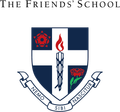Introduction to the TCE

Introduction to the Tasmanian Certificate of Education (TCE)
The TCE is the Tasmanian Certificate of Education and is the highest level of senior secondary certificate awarded in Tasmania. To gain an ATAR for university entrance, students must also achieve the TCE. This certificate is awarded to all Tasmanians who meet these prescribed standards:
- Participation and Achievement Standard: 120 credit points (with at least 80 credit points in studies at Level 2 or higher)
- Everyday Adult Standards:
- Reading, Writing and Communication (in English) (Literacy)
- Mathematics (Numeracy)
- Use of Computers and the Internet (ICT)
Important Information
You will find the subjects listed in this section in alphabetical order under Learning Areas. There are eight Learning Areas, and students are advised to choose subjects from as many of the eight as possible in order to keep their options open for future career paths, as well as to gain a broad education.
All students need to give careful consideration to their future plans, and have a realistic view of attainable goals, as well as a clear understanding of university entrance and other requirements.
This is a link to the TASC website with more information about the TCE.
TCE Subjects
Subjects are offered on six lines. Students normally take subjects on five lines and have one line for private study. It is important for students and parents to realise that success is much more likely in courses which challenge, but which do not over-extend. Advice is always given with this in mind.
Subjects are available at different levels and for different lengths of time.
Subjects are identified as Level 1, 2, 3 or 4 and are designed for approximately 50, 100 or 150 hours of teaching time. The codes given for each subject are Friends’ School codes based on TCE equivalents and contain that information – for example English Literature ENL315.
The ‘3’ shows the subject is at Level 3 and ‘15’ that the time will be 150 hours. 150 hours is the equivalent of a full line.
All Level 3 and 4 subjects are at pre-tertiary level and are 150-hour courses. Level 1 or 2 subjects may be any of the three lengths, and are not pre-tertiary.
Decisions as to which subjects run will be made once initial indications of choices have been made.
Pre-Tertiary Subjects
These have approximately 150 hours class-time and are designed for students who may go on to tertiary study. They all have external as well as internal assessment components. They are marked with the sentence: This is a pre-tertiary subject.
Should a student not reach a satisfactory standard by the end of the year, they would usually receive a Preliminary Achievement (PA) award. The subject would not then qualify as a subject for university entrance purposes, but will still gain credit towards the TCE.
Only a small number of students would study 5 pre-tertiary subjects, so the balance of the five lines will be taken up with a mixture of other subjects and units of particular interest.
Non Pre-Tertiary Subjects
These may have the equivalent of 50, 100 or 150 hours class-time. Although they may not be used for University entrance purposes, there are many interesting courses offered which allow students the chance to explore new avenues or follow particular interests.
Some subjects are taken in order to gain a firm grounding before attempting a related pre-tertiary course in Year 12.
All 150 or 100 hour courses, and TCE accredited 50 hour courses can be counted toward the TCE. There are also a number of school based 50 hour courses. Individual subject entries give details.
TCE & VET
VET courses may cover one line or, in some cases, two lines. Students then choose other TASC subjects to complete their course of study. In this way, students are able to combine TCE study towards university entrance with a VET course.
You may be considering going to TAFE instead of to university. Some TCE subjects, and all VET courses, are counted towards courses taught at TAFE so you can obtain your qualifications more quickly and do not have to repeat work you have already covered successfully.
TCE & IB
In 2026 Friends' students have the option of studying IB Diploma Global Politics and/or Spanish ab inito. Neither of these subjects is offered by TASC. Successful completion of each of these two year subjects contributes 15 points towards the TCE, but does not count towards the ATAR.
Assessment
Assessment procedures for TCE subjects are usually criterion-based. Each subject will have a number of criteria, all of which are assessed internally.
Where the syllabus indicates that the course is externally assessed, some criteria will also be assessed externally. The internal and external ratings are then combined to give an overall award. The form of external assessment will vary from subject to subject, and may well include much more than the traditional end of year 3 hour exam. In some subjects there will not be an external exam at all. Details of criteria and assessment procedures are available in the syllabus statements.
Awards
Awards for the great majority of TCE subjects and all pre-tertiary subjects will be made as follows:
EA Exceptional Achievement
HA High Achievement
CA Commendable Achievement
SA Satisfactory Achievement
PA Preliminary Achievement
NA* No Award
Note: where it is not possible to give any of these assessments, an NN is given. Subjects in which an NN is given do not appear on TCE certificates.
University Entrance Requirements
To be considered for university entrance, students must fulfil the following TCE requirements:
- Obtain Satisfactory Achievement (or better) in at least four pre-tertiary subjects
- Gain a Tasmanian Certificate of Education
- Be successful in the four pre-tertiary subjects in two sittings, but not necessarily consecutive sittings. For example, if you gain one pre-tertiary subject in Year 11 and do poorly in Year 12, you can study for a further year and add those results to your Year 11 result if you wish.
Prerequisites
In some faculties at university there are also specific subject requirements. You will need to check university handbooks to be sure. It should also be noted that many mainland universities require pre-tertiary English.
Scaling & ATAR Scores
Each successful pre-tertiary subject is given a score. If you get a SA or better in a subject, your initial score will be between 1 and 20, being the most points attainable with an EA. If you get a PA in a subject, you will not be given a score.
Subjects scores are then scaled to take account of the relative difficulties of achieving each award in each subject. Please note, given the scaling process, it is difficult to predict the final possible scores in any subject.
The tertiary entrance score is the sum of your five best pre-tertiary subjects over two years. You do not have to count prerequisite subjects if they are not your best scores.
The ATAR (Australian Tertiary Admission Rank) score is calculated from the tertiary entrance score and is used by universities, including the University of Tasmania, when comparing students and in awarding scholarships. Further information regarding the ATAR can be found on the TASC website.
Note: Successful completion of the Tasmanian Certificate of Education is a requirement for receiving an ATAR.
University Connections Program (UCP) & High Achiever Program (HAP)
In some subjects, students can access units offered by the University of Tasmania.
Under the Connections and High Achiever program. In most cases, these subjects can be counted towards the ATAR score. Under the High Achiever program, students enrol in a separate university subject delivered by the University of Tasmania in partnership with The Friends' School. Applications for this program must be submitted to the University of Tasmania by late December, 2025 in accordance with eligibility guidelines. Late applications will not be considered. Students enrolled in a UCP or HAP course are still considered full-time students of the School. Students should consult this link for more information. If you are interested, contact Joe Cairns for further details.
Procedure for Subject Choices for Next Year
In order to create a School timetable, which will allow you to make the sort of choices you want, we need an indication of the subjects you would like to study. Once all information has been processed, you will be asked to confirm these choices.
The line structure for next year will be based on your choices, so make them carefully. There will, of course, be the opportunity to review your choices, but once the groups on the timetable are set, the structure for the year will be determined. If there are insufficient numbers to run a class, students will be asked to choose an alternative subject.
Tutors will be talking with individual students to ensure that all factors have been taken into account. Parents are encouraged to take part in this process at any stage. In particular, parents will be asked to approve proposed courses of study.
Subject Choice - Year 11
Given the need for careful planning, we are asking students to indicate through the online course selection process their proposed subjects over two years. The Year 12 choices are really to help in forward planning, both for us and for you. They are not binding. At the same stage next year, you will be asked again to make choices for the following year.
Inevitably, there are subjects that do not run every year. Students will be informed where this is likely to be the case.
Some courses are run over a two year rotation, for example Environmental Science will be offered every two years from 2026 and Geography will be offered every two years from 2027.
Keep the following points in mind when you make your choices:
- choose the equivalent of five 150 hour courses for each of Years 11 and 12
- students may study up to five pre-tertiary subjects each year, but might well be better advised to choose no more than four, particularly in Year 11
- choose a balance of humanities/sciences
- choose a balance of theory/practical
- try some new subjects that have not been available to you before
- remember – your tertiary entrance score must include three of your Year 12 subjects
- you need to complete the requirements for the TCE
- a VET course may be the equivalent of one or two subjects.
Note: Students may take a maximum of three 50 hour subjects.
Subject Choice - Year 12
In choosing subjects for Year 12, students need to be particularly aware of the requirements for matriculation and the way in which tertiary entrance scores are calculated. In addition, check the prerequisites for courses that you may be interested in taking at university, either in Tasmania or elsewhere.
Non Pre-Tertiary Subjects
These courses are listed on the 2026/2027 Course Planning document
